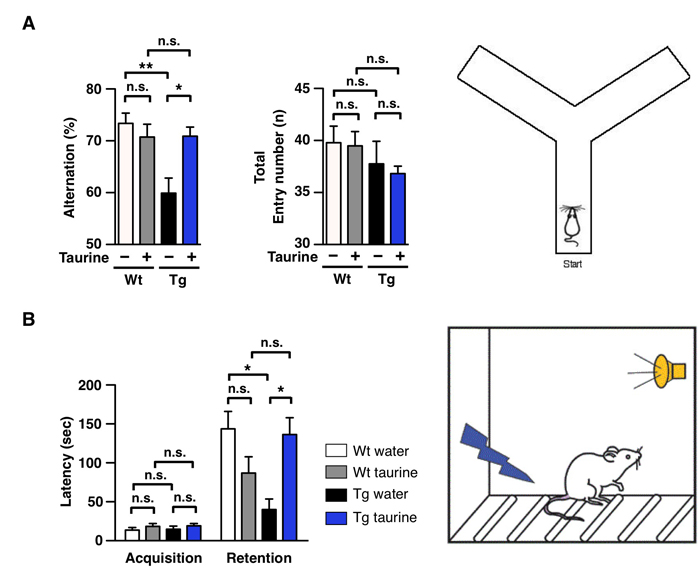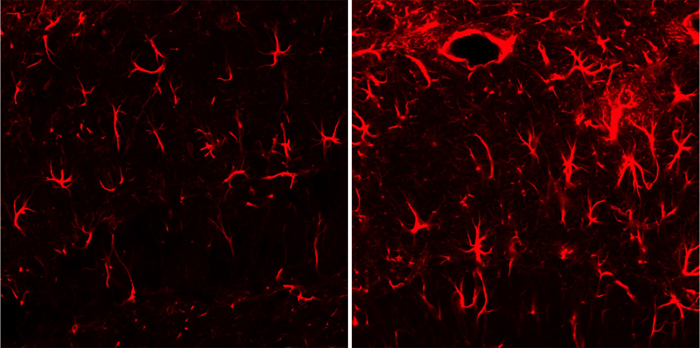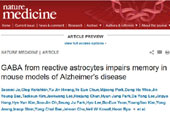As society ages, the number of Alzheimer's patients is rising. Alzheimer's disease accounts for 60 to 80 percent of dementia occurrences, but there is yet no fundamental cure for the disease. Patients will eventually die as their symptoms worsen.
However, a group of researchers at the Korea Institute of Science and Technology (KIST) announced on December 15 that taurine, a chemical found in high concentrations in squid, shrimps and oysters, can be effective in treating Alzheimer's disease. Taurine is known to be effective as an anti-oxidant, helping to recover from fatigue and in stabilizing the blood pressure.
The scientists studied the reaction between beta amyloid, a protein known to be one of the causes of Alzheimer's, and various neurotransmitters. They discovered that taurine, which is also found in high concentrations in people's brains, directly controls beta amyloid. Based on their results, they fed an Alzheimer's disease-induced mouse with 30 milligrams of taurine dissolved in drinking water every day for three months. They then examined the mouse's brain functions.
They found that after the mouse was fed taurine, its cognitive activity recovered to a normal level in both Y-mazes and in passive avoidance experiments. In addition, inflammation of the cerebral cortex, a symptom of Alzheimer's, started to diminish and the amount of beta amyloid discharged from the hippocampus decreased, resulting in more active functioning of neurogliocyte cells, closely related to memory.

What is notable is that taurine has a selective effect on Alzheimer's disease. Unlike existing medication that can cause anomalies in the brain functions of normal mice, taurine does not induce any abnormalities. Another benefit of taurine is that because it can penetrate through the capillary tubes, it is easily absorbed by the brain, even when it is ingested through the mouth. Without a difficult injection processes, taurine can be consumed through drinking water or food and it can still be effective.
Taurine is not only harmless to people but it is also known to be effective while recovering from fatigue, as an anti-oxidant and in the development of the central nervous system. It is already contained in many health supplements and is used in some medicine to treat liver and heart disease.
In Korea, taurine can most easily be found in dried squid. The white powder stuck on the surface of dried squid is taurine. There is a popular saying that the webfoot octopus or squid is good for brain functions because of the taurine. The substance is also contained in high concentrations in oysters. One hundred grams of oysters can have up to 1,130 milligrams of taurine.

The KIST researchers intend to transform the chemical structure of taurine to synthesize a new, better medicine that can fundamentally treat Alzheimer's in humans.
The research was part of a flagship project at the KIST's Brain Science Institute and also part of a program of internships between MIT in Boston and the University of Science & Technology in Korea. The results were published on December 13 in Scientific Reports, a journal, under the title, "Taurine in drinking water recovers learning and memory in the adult APP/PS1 mouse model of Alzheimer's disease."
"By taking advantage of taurine, which is found effective in treating Alzheimer's, we will be able to develop a new medicine that is effective and friendly to the human body and which has no negative side effects," said a KIST researcher.
"Based on the research results, we will find the pathological causes of Alzheimer's disease and make efforts to research and develop a fundamental cure."
By Limb Jae-un
Korea.net Staff Writer
Photos courtesy of the KIST
jun2@korea.kr

However, a group of researchers at the Korea Institute of Science and Technology (KIST) announced on December 15 that taurine, a chemical found in high concentrations in squid, shrimps and oysters, can be effective in treating Alzheimer's disease. Taurine is known to be effective as an anti-oxidant, helping to recover from fatigue and in stabilizing the blood pressure.
The scientists studied the reaction between beta amyloid, a protein known to be one of the causes of Alzheimer's, and various neurotransmitters. They discovered that taurine, which is also found in high concentrations in people's brains, directly controls beta amyloid. Based on their results, they fed an Alzheimer's disease-induced mouse with 30 milligrams of taurine dissolved in drinking water every day for three months. They then examined the mouse's brain functions.
They found that after the mouse was fed taurine, its cognitive activity recovered to a normal level in both Y-mazes and in passive avoidance experiments. In addition, inflammation of the cerebral cortex, a symptom of Alzheimer's, started to diminish and the amount of beta amyloid discharged from the hippocampus decreased, resulting in more active functioning of neurogliocyte cells, closely related to memory.

Cognitive ability tests show that an Alzheimer's disease-induced mouse fed with taurine recovered its memory and learning ability, both returning to normal levels.
What is notable is that taurine has a selective effect on Alzheimer's disease. Unlike existing medication that can cause anomalies in the brain functions of normal mice, taurine does not induce any abnormalities. Another benefit of taurine is that because it can penetrate through the capillary tubes, it is easily absorbed by the brain, even when it is ingested through the mouth. Without a difficult injection processes, taurine can be consumed through drinking water or food and it can still be effective.
Taurine is not only harmless to people but it is also known to be effective while recovering from fatigue, as an anti-oxidant and in the development of the central nervous system. It is already contained in many health supplements and is used in some medicine to treat liver and heart disease.
In Korea, taurine can most easily be found in dried squid. The white powder stuck on the surface of dried squid is taurine. There is a popular saying that the webfoot octopus or squid is good for brain functions because of the taurine. The substance is also contained in high concentrations in oysters. One hundred grams of oysters can have up to 1,130 milligrams of taurine.

The photograph of a hippocampus, the area of the brain responsible for memory, shows that the neurogliocytes are very active in the brain of a normal mouse (left) and in that of a taurine-fed mouse with Alzheimer's disease.
The KIST researchers intend to transform the chemical structure of taurine to synthesize a new, better medicine that can fundamentally treat Alzheimer's in humans.
The research was part of a flagship project at the KIST's Brain Science Institute and also part of a program of internships between MIT in Boston and the University of Science & Technology in Korea. The results were published on December 13 in Scientific Reports, a journal, under the title, "Taurine in drinking water recovers learning and memory in the adult APP/PS1 mouse model of Alzheimer's disease."
"By taking advantage of taurine, which is found effective in treating Alzheimer's, we will be able to develop a new medicine that is effective and friendly to the human body and which has no negative side effects," said a KIST researcher.
"Based on the research results, we will find the pathological causes of Alzheimer's disease and make efforts to research and develop a fundamental cure."
By Limb Jae-un
Korea.net Staff Writer
Photos courtesy of the KIST
jun2@korea.kr

